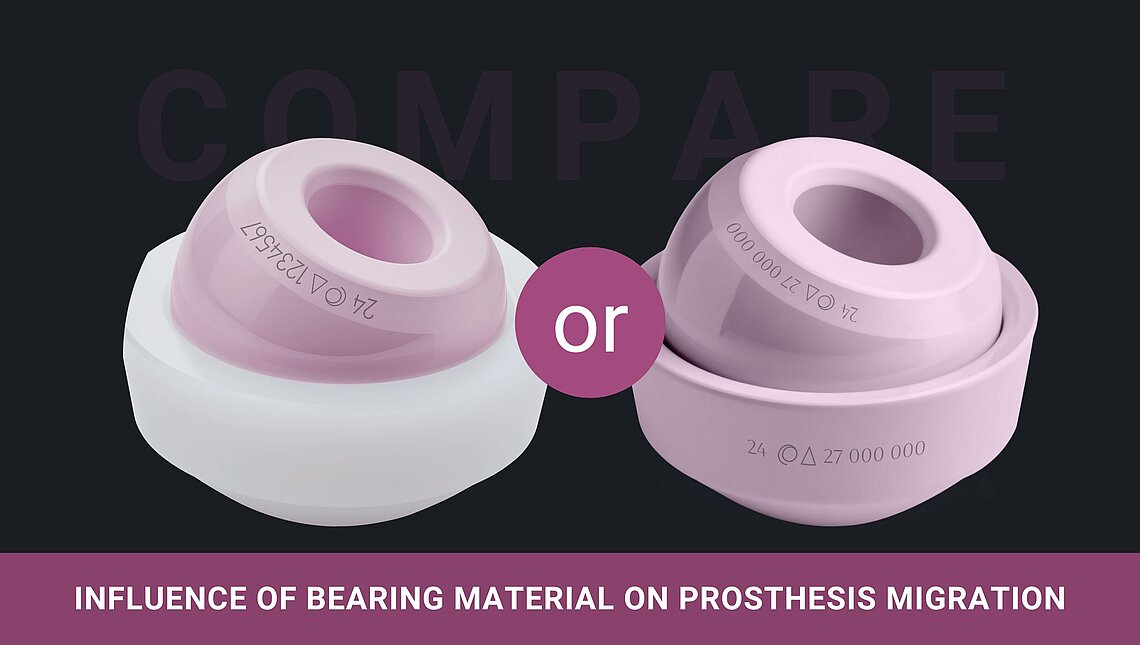Safe Ingrowth: Comparable Migration Patterns of Ceramic and Polyethylene Liners in THA at 5 years
This randomized controlled trial (RCT) by Klaassen et al. for the first time investigates the migration patterns of both BIOLOX®delta CoC and CoXPE bearings through a 5-year assessment of implant migration using radiostereometric analysis (RSA). RSA is recognized as a pivotal predictor of long-term implant stability and aseptic loosening.
Patients:
53 patients aged 40 to 71 years were enrolled in the study, with an average BMI of 26.5 kg/m².
➡ CoC Group: 28 patients; average age 58.2 years; 52% male.
➡ CoXPE Group: 25 patients; average age 59.8 years; 56% male.
Materials:
Press-Fit Delta-TT® cup (LimaCorporate /Enovis) and H-MAX S® stem (Lima/Enovis) fitted with and 32mm BIOLOX®delta head and paired with either a BIOLOX®delta ceramic or polyethylene liner.
Methods:
Radiostereometric analysis (RSA) was applied to assess the implant stability and compare the migration patterns of the two liner types at 3 months, 6 months, 12 months, 2 years and 5 years.
Outcomes at 5 years:
Migration Patterns: Both liner types displayed similar initial migration rates, with no significant differences observed between groups throughout the study period.
Implant Stability: After initial migration, both groups demonstrated stabilization, indicating effective long-term implant performance.
Take-Home Message:
The study provides strong evidence that both ceramic and polyethylene liners can be effectively used in THA without compromising on wear resistance and implant stability. These findings are crucial in guiding surgeons on material selection to optimize THA outcomes.
📚 Klaassen AD, van Loon J, Willigenburg NW, Koster LA, Kaptein BL, van der Hulst VPM, Haverkamp D, Moojen DJF, Poolman RW. Comparison of 5-year cup and stem migration between ceramic-on-ceramic and ceramic-on-polyethylene bearing in press-fit total hip arthroplasty: a randomised controlled trial using radiostereometric analysis. Hip Int. 2024 Aug 19:11207000241265653. doi: 10.1177/11207000241265653. Epub ahead of print. PMID: 39160668.

